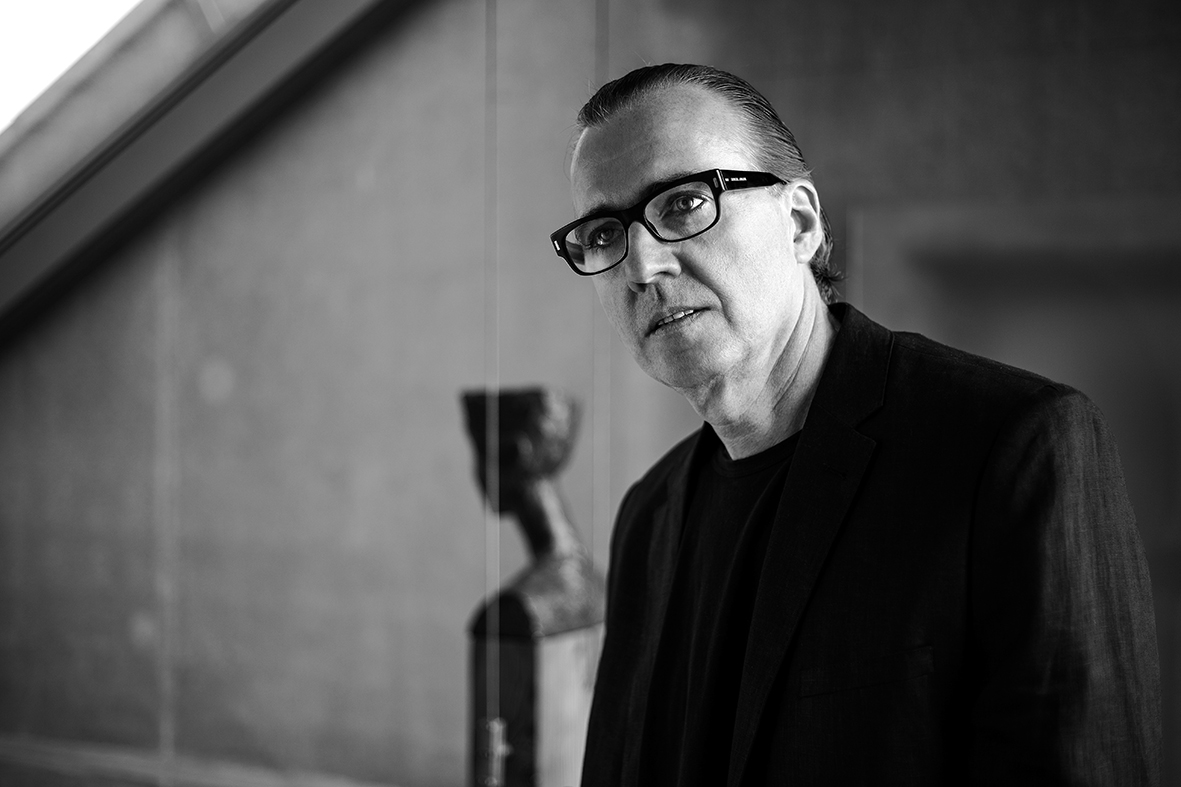American jazz pianist Jim Beard embraces fearless musical exploration: “It’s not so much about how you do it, it’s about doing it”
In celebration of its illustrious 40-year journey, the Sibelius Academy Jazz department welcomes a long-time friend, the remarkable American jazz pianist and keyboardist, composer, arranger and producer Jim Beard for another residency visit to Uniarts Helsinki.

Jim Beard, a cherished guest at the Sibelius Academy Jazz department since 1994, has left an indelible mark on the landscape of jazz and composition. On the day of his arrival, we sat down to learn about his current projects and reflect on the impactful role he has played in shaping the musical journey of aspiring talents at the academy.
Can you take us back to your very first visit to the Sibelius Academy – what standout memories do you have from that time and your teaching experience here?
My very first teaching experience here was a week-long summer jazz camp on the western coast of Finland. Prior to that, I had worked with the late American jazz guitarist John Abercrombie here and played in the Sea Jazz Festival already in 1988.
After that I started spending more time at the Sibelius Academy as a guest teacher. At the time, the Jazz department was located in Pitäjänmäki.
The students were great. I particularly remember a young student from a small town who played the accordion. He was incredible, a complete prodigy. I always wondered what happened to him.
What excites you the most about returning to the academy time after time?
I always enjoy teaching, simply because I find the quality of the students really good; their musicianship is at a very high level. I attribute that primarily to the fact that they had to audition to get into this school.
I have taught at renowned music institutions around the world such as the Mason Gross School of Arts, Berklee College of Music and Aaron Copland School of Music and there are great students everywhere. However, in many American schools you get in if you have the money. Here you have to be good to get in.
What can students look forward to?
The main thing I’m doing is leading two ensembles and I meet with graduate students. I have sent a bunch of music to [head of the Jazz department] Jussi Kannaste during the past couple of weeks. Some of the things I sent, I haven’t tried in a live setting. So, we’re going to find out what happens. I hope it goes well. Ultimately, it’s the process that counts.
In these turbulent times worldwide, how do you see the role of music and culture?
Music is separate from politics and conflicts. In many cases, the world leaders could learn from the way musicians behave. I have been in bands with people from such diverse backgrounds – and we all get along just fine.
I recently heard this joke: A Muslim, a Jew, an atheist, and a Hindu walk into a bar. What’s the punchline; what happened? Nothing, they just laugh and have a good time.
While you’re on tour with the renowned Steely Dan, what’s the most inspiring aspect of it – and what can you tell us about your current projects as a musician, composer and arranger?
Steely Dan is one of the greatest names in music and the band is incredible. I was a fan when their record came out, so I knew the music.
I have just finished producing a record for Mike Stern. Most of the tracks are played with three guys, Chris Potter, saxophone; Christian McBride, bass and Antonio Sanchez, drums.
I also have a whole bunch of new music. I did a project with the Metropole Orchestra with music that I had previously recorded and then arranged for an orchestra. Now I’d like to do another project with them, which would be all new original music.
We’d love to hear about your collaboration with the late jazz legend Wayne Shorter. What can you tell us about that experience and its impact on your music?
Do we have three hours? It was the most incredible thing. I had the good fortune of working with him for 14 years, in six or seven incarnations of bands. He was an incredible human being, prolific in so many ways.
The last time we talked was when I called him on Christmas Eve of 2022, just a couple months before he passed. He was in good spirits. He asked me if I wanted to talk to Herbie Hancock and we had a fun conversation. I’m really happy that I got to talk to him.
What advice would you give to aspiring musicians on building their international network?
That’s the question I want to ask the students! It’s just a different world now compared to the time when I was young, getting out there. With the prevalence of social media, it appears to me that the most crucial advice is to make sure you leave enough time for practice. It almost seems that young musicians are often spending more time getting their face on Instagram or Facebook, seeking their 30 seconds of visibility, rather than dedicating that time to practice.
We encourage students to try new things fearlessly. How do support this idea in your own teaching?
We’re going to be doing exactly that with this music I’m bringing here. That’s the entire idea of our platform. It’s not so much about how you do it, it’s about doing it.
To wrap up on a lighter note: You’ll be coming to Santa Claus’ homeland just before Christmas. Are you a fan of the holiday season and all things festive?
Absolutely, big time. I’ve even taken my kids to the Santa Claus village in Lapland. I’m totally in.